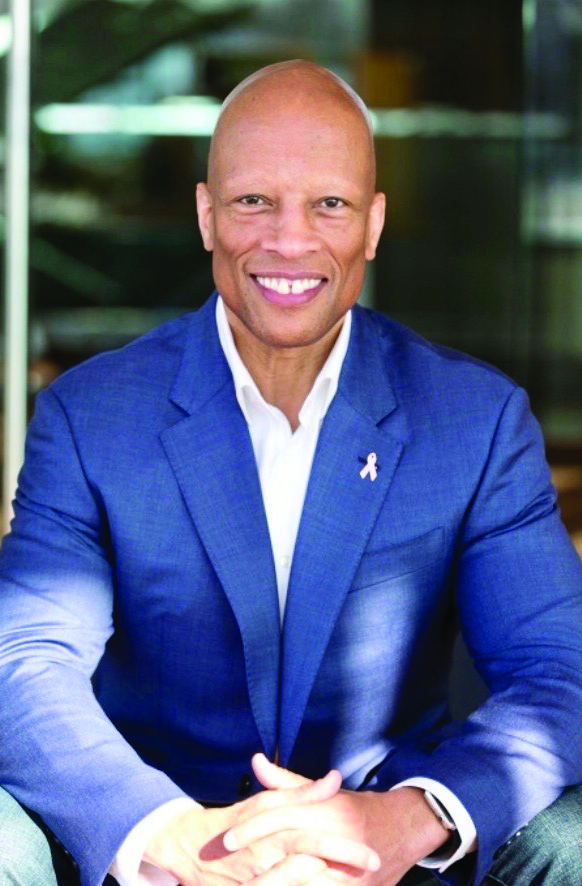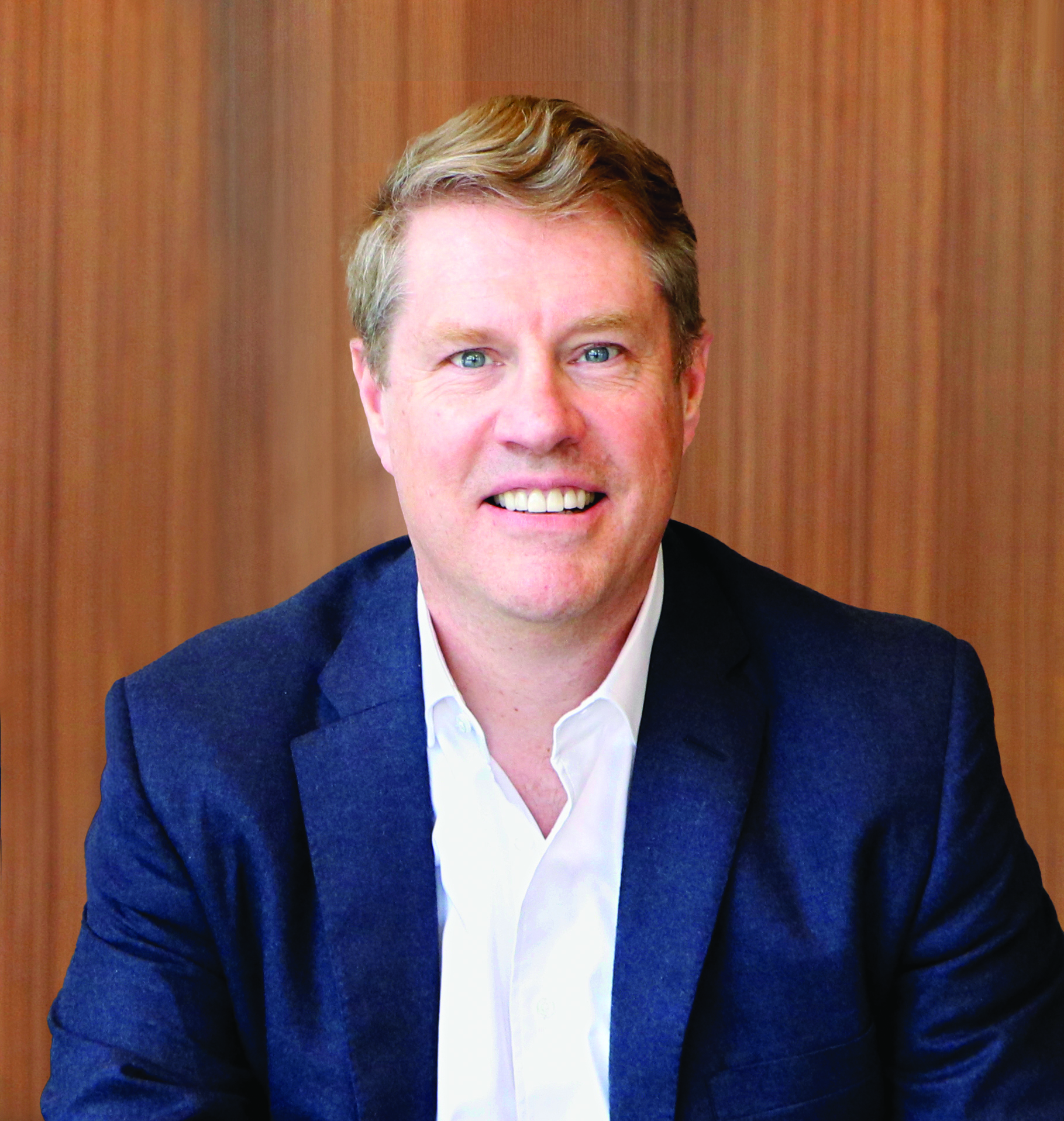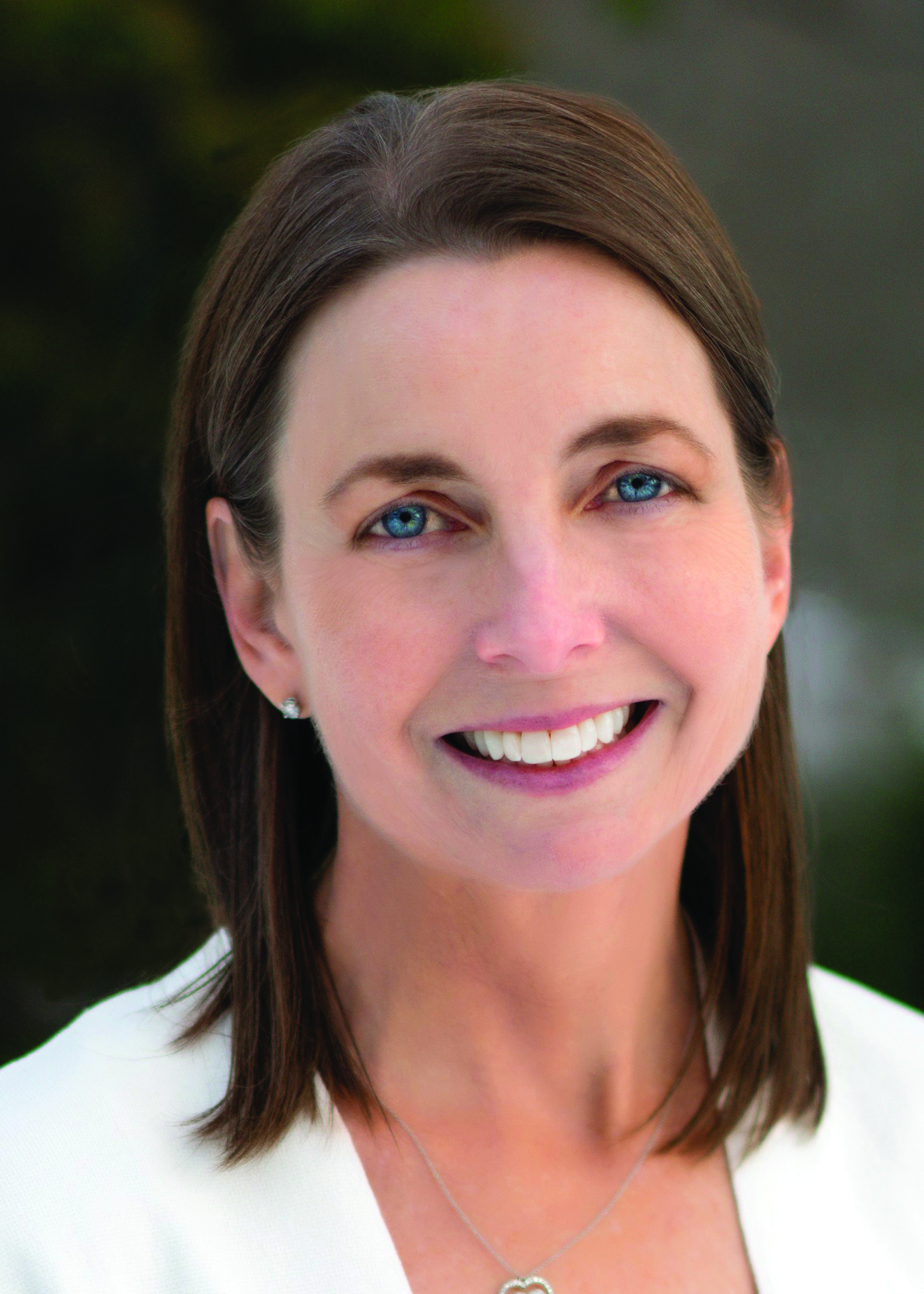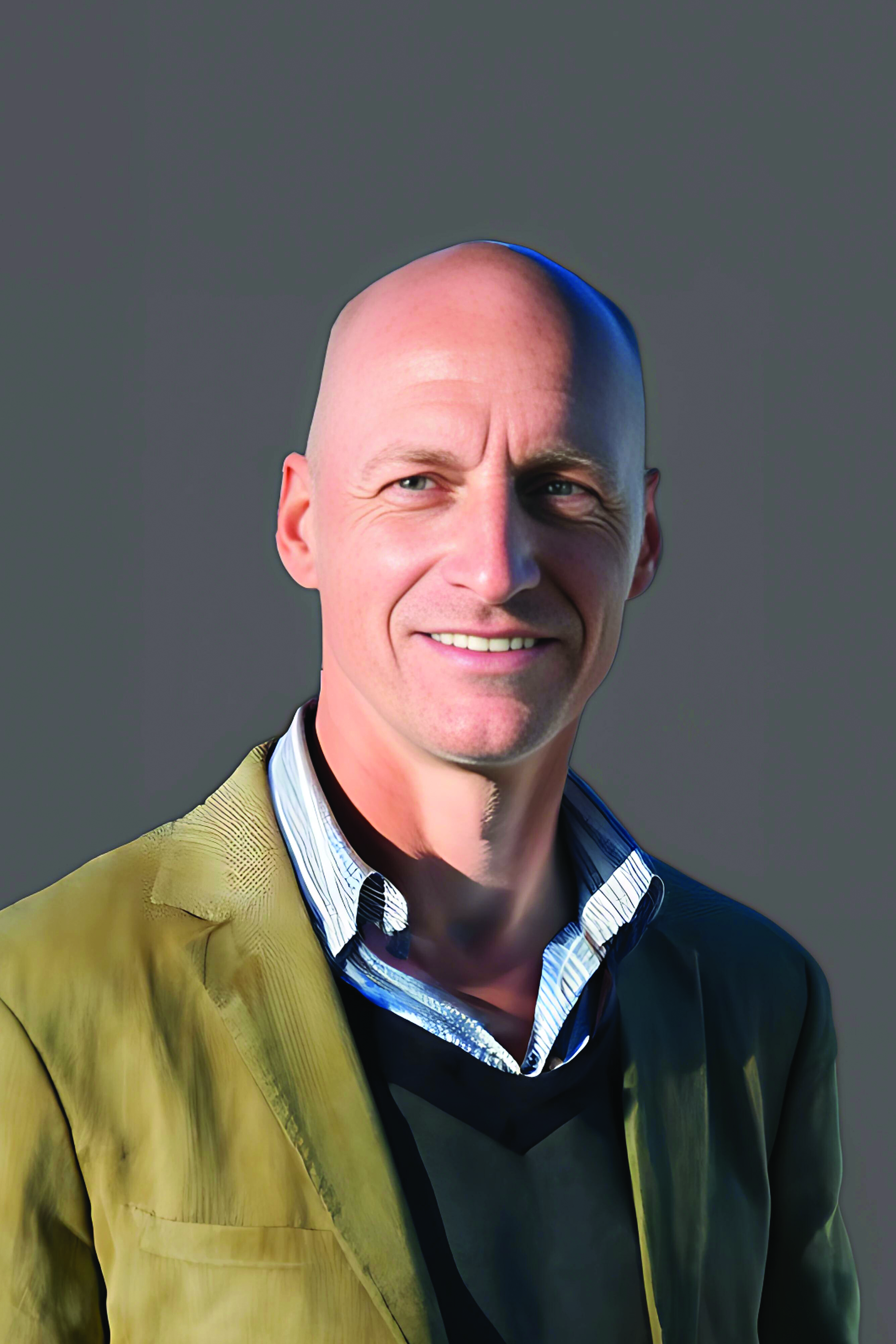Checkpoints: The medical mission
Four graduates reimagining patient care through innovation and education
The Air Force Academy’s influence extends far beyond the cockpit and into health care innovation, as four graduates — among many — demonstrate daily in applying their military precision to pioneering medical advances across diverse specialties. Their Academy training fuels breakthrough pharmaceutical research, transforms analytics into personalized health guidance, shapes tomorrow’s military and civilian physicians, and advances synthetic immune technologies.
Though they have exchanged blue uniforms for lab coats and lecture halls, these graduates are walking proof that the Academy’s impact stretches far beyond traditional service. The values instilled at 7,258 feet now benefit patients through next-generation treatments, reimagined health relationships, medical education excellence and cutting-edge therapies.
As these graduates navigate complex challenges, they showcase how military discipline creates positive ripple effects across health care’s most critical frontiers.
BJ Jones '85 | NewAmsterdam Pharma

A sixth-grade career day in Bloomfield, Connecticut, set BJ Jones ’85 on a path to the Air Force Academy long before he truly understood what military service entailed.
When a commercial airline pilot visited his classroom, Jones shared his fascination for World War II aircraft like the P-47 Thunderbolt and P-51 Mustang. The
pilot offered life-changing guidance: If you truly love aviation, aim for the Air Force Academy.
“Right then, I set my sights on attending the Air Force Academy,” Jones remembers.
Jones majored in human factors engineering at the Academy while developing leadership skills that would shape his future. As squadron commander for CS-40, he led 110 fellow cadets, developing resilience through both success and failure. Between leadership responsibilities, Jones competed on the karate team, ultimately winning his weight class at the Diamond Nationals World Karate Championships.
Though migraine headaches derailed his pilot aspirations, Jones found his technical niche at Wright-Patterson Air Force Base, Ohio, as a weapon specialist focusing on enemy aircraft helmet-mounted sites during the Cold War era. Later, after earning a master’s degree in industrial engineering from Texas A&M, he worked at Brooks
Air Force Base developing AI-enhanced training systems for both Air Force and NASA applications.
Jones’s transition to civilian life began when Bristol Myers Squibb recruited him with rotational assignments and an MBA sponsorship. After completing his Stanford MBA, he spent 12 years at Bristol Myers Squibb, eventually leading marketing for Abilify, a breakthrough treatment for schizophrenia and bipolar disorder.
His pharmaceutical journey took him through leadership positions at Boehringer Ingelheim and back to Bristol Myers Squibb, where he integrated a 3,500-person sales force combining teams from three organizations. Later, as the chief commercial officer at Biohaven Pharmaceuticals, Jones faced perhaps his most daunting challenge.
“We launched right at the start of
COVID in March 2020,” Jones says.
“Literally, the world was shutting down as we were launching this drug.”
Despite the unprecedented circumstances, the company’s innovative approach
prevailed.
“We used Zoom right away to engage people in a meaningful way,” he says. “Not only did we compete well, but we actually won versus AbbVie from a market
share standpoint.”
After Pfizer acquired Biohaven, Jones joined NewAmsterdam Pharma in a similar role, where he now leads commercialization efforts for a promising cardiovascular treatment. The company has completed three successful Phase 3 clinical trials for their once-daily oral medication targeting cardiovascular disease.
“Cardiovascular disease is still the
No. 1 killer across the globe today, and that death rate is only accelerating,” Jones says. “There’s tremendous unmet need in that space.”
For Jones, the through line from military service to pharmaceutical leadership is clear. The values instilled at the Academy — integrity, service before self, excellence —
aligned perfectly with health care’s mission.
“There’s this mantra we talk about at NewAmsterdam Pharma – ‘speed to
patient’ and ‘every day matters,’” Jones says. “We need to do everything we can to get this lifesaving medication into the hands of patients who need it. This gets me excited and jumping out of bed every Monday morning.”
Recently joining the Air Force Academy Foundation board of directors, Jones remains connected to his alma mater and committed to giving back.
“What the Academy has given me is the foundation for who I’ve become,” Jones says. “The people who invested their time and energy into me helped me become the man and leader that I am. Now it’s my turn to seek ways to give back.”
Mike Ott '85 | Mobe

When 9-year-old Mike Ott ’85 first glimpsed the Air Force Academy during a family road trip from Chicago in 1973, something clicked.
“I saw this place and I’m like, ‘I want to go there,’” the retired colonel recalled.
That childhood vision became reality through what he describes as “a little charisma and salesmanship,” setting him on a path that would eventually lead to pioneering health care innovation.
Today, that same determined spirit drives Col. Ott’s leadership at MOBE, where he is leading a health care revolution that even seasoned industry veterans did not see coming.
Under Col. Ott’s leadership as CEO, he directs the company’s established health care analytics approach with a radical promise: They’ll make patients healthier while simultaneously cutting costs — and they only get paid if they succeed.
“Nobody in health care does what we do. Nobody,” Col. Ott says, describing MOBE’s distinctive business model. “We take full risk on a hidden population of people that we identify through data analytics and their behaviors in the health care system.”
MOBE analyzes billions of health insurance claims to identify patients who are overutilizing medical services without seeing improvements in their health. The company then engages these individuals with a personalized approach, connecting them with pharmacists, dietitians and other health care professionals who guide them toward better health management.
What makes MOBE’s approach revolutionary is its payment model. Unlike traditional health care businesses, MOBE is paid only when patients improve and costs decrease. This accountability-focused model has proven successful. MOBE consistently reduces health care spending by 6-8% for its target population, while supporting better outcomes.
The 300-employee company has analyzed more than 12 billion claims in its nine-year history, building a treasure trove of health care insights. This data powers their ability to identify and help patients who might otherwise fall through the cracks of the vast health care system.
Col. Ott brings a wealth of experience to his role at MOBE.
After six and a half years in Air Force acquisitions at Hanscom Air Force Base, Massachusetts — where he earned his MBA from Boston College — Col. Ott transitioned to Wall Street. His career path took him through investment banking and wealth management at U.S. Bank, and eventually to UnitedHealth Group before joining MOBE.
Academy values remain central to his leadership philosophy.
“The core values are embedded in who I am and how I operate,” he says. “As a leader, it’s more than words; it’s through your behavior, and it’s what you don’t
allow to happen that really personifies your leadership style.”
MOBE’s philosophy centers on helping people build new relationships with their own health through four core tenets: Eat, sleep, move and smile. Unlike traditional coaching, MOBE’s approach is about guidance.
“A coach is going to tell you what to do; a guide is going to suggest and help you get to that next moment based on understanding who you are, what motivates you,” Col. Ott says.
As health care continues to face challenges of provider shortages and fragmented care, MOBE’s human-first, data-driven approach offers a promising path forward. For Col. Ott, the impact extends far
beyond business metrics.
“The stories and testimonials that we hear around people’s lives that we’ve been able to change by building this new trusted relationship is really quite astounding,” Col. Ott says. “I love the challenge. I love being different. And when you look at the intersection of us helping people get healthier and taking spending out of the system, that’s insane. And we empirically know we do that.”
Col. (Ret.) April Fitzgerald ’87 | Johns Hopkins Medicine

When her high school AP U.S. History teacher held up the front page of the local Fort Lauderdale Sun Sentinel with a photo of a school alumnus and Annapolis grad
accepted to NASA’s astronaut program, it sparked a path that eventually led
Col. (Ret.) April Fitzgerald ’87, M.D., to USAFA, Chicago, Harvard, the Pentagon and the Johns Hopkins University School of Medicine.
“My teacher told us, ‘This is what
success looks like,’” she recalled. “Until that moment, I had never considered the academies.”
Raised in a city she describes as “not the bedrock of morality,” Col. Fitzgerald was drawn to the Academy’s structure and values. Though she says she was initially captivated by the Naval Academy, her father’s Air Force Reserve service influenced her choice.
As an electrical engineering major, Col. Fitzgerald devoted herself to academics.
“I was from a lively hometown, so I viewed time at the Academy to be for serious study and hard work,” she explains.
The Academy environment proved transformational.
“Every year I was there, I felt like I was becoming a better person, more grounded and more ethically based,” she says. After graduation, she worked on the Milstar terminal program at Hanscom AFB while completing pre-med courses at Harvard. She met and married her husband, Mark Fitzgerald ’87. Together, they transitioned to the Reserve Corps and matriculated at the University of Chicago, Mark for a J.D./MBA and April for an M.D. They returned to Boston for her residency in internal medicine at Harvard Medical School’s Beth Israel Deaconess Medical Center, and Dr. Fitzgerald accepted her first academic position at Massachusetts General. Sept. 11, 2001, changed everything.
“I got a phone call from Headquarters Reserve asking general questions about how I was doing, and I told them, ‘Great, I have a newborn,’” Dr. Fitzgerald recalls. “They said, ‘Wonderful’ and read me the script activating me to the Pentagon.” Later, she learned Headquarters Reserve had called about a dozen other physicians before her, but others gave reasons not to be activated. “Maybe it’s the Academy grad in me, but saying ‘no’ to that call was unthinkable.”
She served for a year at the Pentagon as the only activated Reserve physician, treating service members with a range of 9-11-related issues from airway reactivity to PTSD.
Today, as a faculty member at Johns Hopkins University School of Medicine, Dr. Fitzgerald transforms medical education with leadership principles from her military experience.
“When I started at Hopkins, my academy background stood out, and they asked me to create a leadership curriculum,” she explains.
What began as a course for medical students evolved into a national curriculum for medical faculty.
“Leadership is something you teach because it’s important, even though the metrics are incredibly difficult to measure,” says Dr. Fitzgerald, an Air Force Academy Foundation board director.
Looking to medicine’s future, Dr. Fitzgerald sees more targeted treatments: “More precision and less collateral damage, if we put it in military terms.”
Now decades removed from that pivotal moment in history class, Dr. Fitzgerald credits her successes to what she learned at the Academy and on active duty.
“There’s not a day, not a patient, not a student, not an interaction where the Air Force core values don’t come into what I do,” Dr. Fitzgerald says. “Integrity, service, excellence — they aren’t just words; they’re the foundation that enables us to face any challenge, in any field, at any time.”
Joshua “Scotch” McClure ’96

Raised by an Army aviator father who flew dangerous missions across the East German border, Joshua “Scotch” McClure ’96 grew up immersed in Cold War narratives.
“I grew up only knowing the Cold War, idolizing my dad as a hero in that battle,” says McClure, now CEO and chairman of Maxwell Biosciences. “I saw the West’s culture as something beautiful that should be protected. I wanted to serve in some capacity.”
At the Academy, McClure discovered profound lessons that shaped his entrepreneurial journey.
“I learned so much about leadership and integrity and the difference between being a manager, a supervisor and a leader,”
McClure explains.
After five years working in intelligence and project management, McClure entered the private sector with remarkable early success in the dot-com era, followed by a humbling failure.
“I thought I was an absolute genius in business and put all my winnings into my next company, which failed completely,” he says.
After consulting with an attorney, McClure chose to pay his debts rather than declare bankruptcy.
“I learned some valuable lessons and knew I had what it takes to succeed,”
he says.
After rebuilding and selling a successful commercial real estate AI company, McClure founded Maxwell Biosciences about 10 years ago when his father and daughter faced serious health challenges.
The company develops Claromers,
synthetic small molecules that mimic and improve upon the natural immune system.
“I felt called spiritually to this space,” McClure says. “It brought together the dot-com side, the hardware side, and then AI — applying all that to biophysics and biotechnology.”
Today, McClure’s team is developing cutting-edge treatments and AI-integrated medical devices that will form personal
relationships with patients.
“Everything should be AI-first. Whatever project you’re working on should start with AI,” he says. “To the degree that you know how to interface with AI is the
degree to which you will be successful
going forward.”
The Academy’s core values continue to guide McClure’s approach to business leadership, particularly regarding integrity — a concept he admits took years to fully understand.
“I did not understand what integrity was when I was at the Academy. What
I heard when they said integrity was
honesty,” McClure says. “It was only later I realized that integrity is literally your ability to bear a load. How aligned are your body, mind and soul? Is what you’re doing in private the same as what you’re saying in public? Integrity generates
respect. It’s a respect engine.”
Looking toward the future of medicine and longevity, McClure is optimistic, stating modern humans can easily expect to live past 100, by decades even, he says.
Standing at the intersection of military discipline and scientific innovation,
McClure believes the Academy’s emphasis on integrity has prepared him to navigate the complex ethical questions that arise in biotechnology.
“There are written rules and unwritten rules in life,” McClure says. “You have to be intelligent enough to navigate the written rules but wise enough to figure out what the unwritten rules even are. The true power lies in finding others who
understand those unwritten rules and leveraging them to do good for our country and humanity. That’s what the Academy taught me, and that’s what guides Maxwell Biosciences every day.”

